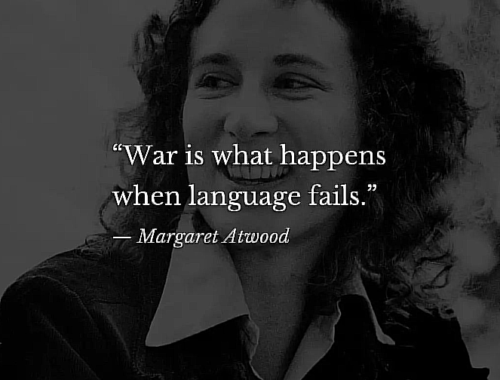
How Absolute?
Two chapters a day is my quota for War and Peace. It’s possible that I will make it more of a priority at some point, but for now, I am content with my pace and have been pleasantly surprised by how much I remember from the first time I read it (two years ago, I think). It certainly is a book that should be read more than once.
Of course, taking in (also for the second time) Gary Saul Morson’s Hidden in Plain View: Narrative and Creative Potential in ‘War and Peace” changes the way I re-read Tostoy’s classic. According to Morson, much of what Tolstoy is trying to do with his unorthodox methods, which include interspersing straight-up “history” with fiction, is to shine a light on the absurdity of thinking anyone can accurately explain why anything happened, especially since no one can accurately explain what happened. With billions of people in the world, who is to say that only one was the cause of something historically significant? What’s more, who’s to say that said person’s actions were deliberate? For instance, Napoleon may have made a good or bad decision that affected the outcome of a battle simply because he had an upset stomach or had slept poorly or was peeved by someone. If you add to that how accurately or inaccurately his orders were communicated and whether they were followed to the letter by all who were supposed to execute them, well, you begin to see how many factors might affect an outcome. What’s more, war is never neat and tidy. What happens on the battlefield is never the same as what plays out in someone’s mind or on a drawing board.
What about the way in which the circumstances of an event are communicated? Tolstoy noted (and points out in War and Peace on a number of occasions) that a person who has just experienced something is not even capable of accurately describing what happened a mere ten minutes later. Not only does the speaker (or writer) sort which details are worth mentioning and which are not, he also subconsciously caters his story to his audience.
I have entertained similar notions myself, especially regarding science, which people love to claim is “objective,” and therefore, somehow above reproach. Since humans are involved, however, science can never be truly objective. A human decides which hypothesis to test, what methods will be used to test it, which data will be recorded, which will be discarded, which will be reported. Quite often, a human cannot even get started without funding, and who decides which research will garner money from whom?
Absolutes are tough. Is Shakespeare really the best English playwright ever? Is it possible that someone else was better but was unable to attract an audience as Shakespeare was, perhaps because he or she simply did not enjoy the same social connections? Why are Thomas Edison’s inventions so familiar, while Nikola Tesla’s are so obscure?
We like to focus on artists, be they musicians, writers, or painters, but we seldom pay attention to the gatekeepers, the ones who decide, at some level, whose work will be seen or heard and who are destined for the dustbin of history.




